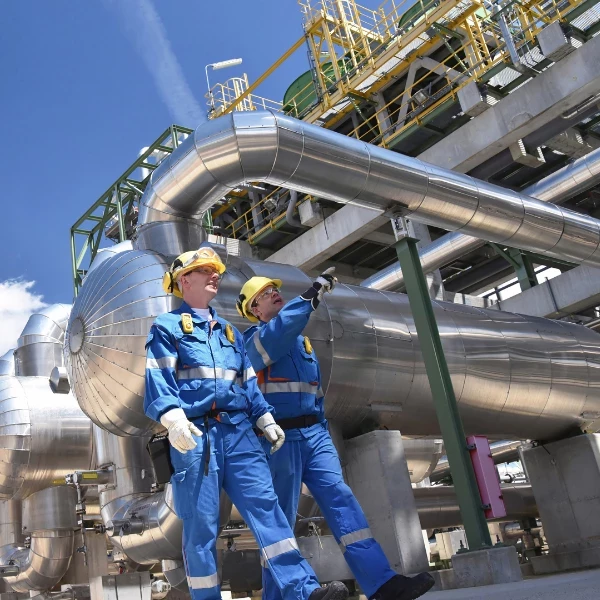6 Ways Digital Transformation Can Accelerate Sustainable Operations
From increasing resilience to boosting and optimizing productivity...
Add bookmark
Contributed by: Emily Newton
Digitization is a megatrend and no longer optional for competing in today’s hyper-connected marketplace. However, another concept has accelerated alongside the monumental rise of digital transformation — sustainability. They now go hand in hand.
The world is on a precipice, with AI and comprehensive data tools leading the charge. Knowing how digitization for sustainability can empower modern operations goes a long way toward prioritizing implementation. In light of that, here are six ways digital transformation can accelerate sustainable operations.
1. Increasing Resilience
Climate change, dwindling resources and scarcities, natural disasters, and major supply chain disruptions are just a few challenges impacting modern industry. However, since sustainability is also about resilience, all companies should look to secure it. The bigger the challenge and the more tumultuous the market, the more resilient operations must be.
Solid technological investments improve operational efficiency by:
- Saving time and money
- Reducing the impact of future market shifts or events
- Improving operational flexibility
- Introducing remote operations support
- Creating automation solutions
- Providing cloud-based and remotely managed data solutions
The United Nations Development Programme helped Malawi farmers and locals by integrating various innovative technologies, such as solar-powered weather stations, flood sensors and lightning detection systems. The aggregated data from these sources helps build a more nuanced analysis to better react to climate events and changing local conditions. With that technology on hand, they instantly become more resilient and aware.
LISTEN: How Generative AI Can Contribute to the Evolution of Industry 4.0
2. Building Out Greener Solutions
At the core of eco-consciousness is a balance between resource consumption and resource production, particularly regarding effective operations and eco-friendly initiatives. A proper digital transformation will introduce computational tools to streamline the data related to these initiatives and produce new insights. The tools dig into the information for personnel and extract actionable insights. Building out greener solutions or improving what is available can aid in optimizing sustainability in the industrial and manufacturing sectors.
Sophisticated modeling can help discern new strategies for deployment. Smart technologies can help monitor resource usage and identify reduction opportunities. Most importantly, the boon and growth of available data can vastly influence current and future operations, which is precisely what digitization is all about.
Some ways digital transformation benefits green sustainability include:
- Efficient e-waste management
- Reduced physical footprint
- Better resource optimization
- Improved efficiency and performance
- Data-driven and intelligent decision-making
- Remote work opportunities
- Reduction in supplies usage like paper or physical resources
- Sustainable research and innovations
3. Boosting and Optimizing Productivity
Eco-friendliness is not just about reducing resources and usage — it is also about maximizing what is available. For example, a major goal might be to cut down on power consumption without decreasing productivity and performance. That comes with its own set of challenges, namely because reducing power often limits capabilities, especially in manufacturing.
Digitization introduces various data-driven tools that tap into multiple external market factors to predict potential impacts and pinpoint effective solutions to these challenges. Suppose there is a slowdown in parts, materials or supplies shipments. Supply leaders can safely pivot by locating alternatives or researching new methods to prepare for a constrictive event, all while keeping performance on track.
In the digital printing industry, for example, digitization enables flexibility, affordability, design accuracy and small-batch printing support. It also helps brands create new packages using environmentally friendly materials, but sustainability is the primary focus throughout, providing several advantages to remain competitive and boost productivity.
4. Ethical Cost-Cutting
Many organizations need help implementing cost-cutting measures that truly impact the bottom line. Whether beholden to investors or not, economic shifts can force the hand and growth is not guaranteed. Making the appropriate concessions is tricky, but digital solutions offer a more intelligent tool to achieve this. The vast array of data gained through monitoring, analysis, and extraction — driven by digitization — can provide answers that otherwise would never have been evident.
For starters, eliminating redundant processes, enhancing general efficiency, and modernizing even smaller tasks through automation can reduce operating costs, errors and system inaccuracies. The result is a more sustainable business, fewer wasted resources and a more ethical approach to expense-cutting in the digital age.
READ: 3 Trends to Watch in the Oil and Gas Industry in 2024
5. Increasing Transparency
Manufacturers may not be as affected as distributors and other parties down the supply chain, but major disruptions can cause headaches and delays, especially during procurement and materials handling stages. Digital transformation and sustainability are also directly tied to full market transparency — decision-makers need to know partners’ stances to make the right moves or maintain operations.
Smart sensors and Internet of Things (IoT) devices have been implemented in many ways to help build a more transparent, entrusted supply chain. Moreover, wherever implemented, supply chain goals necessitate real-time analysis and insights into inventories, shipments, and the overall ecosystem. Other facets also rely on similar data points, like minimizing raw materials waste, stocking spare materials or parts, understanding market outcomes, and much more.
IoT monitoring systems are being used in manufacturing to spearhead predictive maintenance, which can apply to many facets of the industry, like datasets that forecast market shortages or slowdowns. Studies show predictive maintenance can help prevent up to 75% of breakdowns. Of course, the real benefit is the transparency gained from the data and what that allows for, particularly when understanding what is occuring, what is coming and how to brace for it.
6. Decarbonization
The rising costs of everything in the economy — utility costs included — means there is a need for alternative solutions. Replacing traditional fossil fuels with renewable resources can be cheaper in the long term, with options like:
- Solar
- Wind
- Hydro
- Geothermal
Digital transformation can help pivot towards these auxiliary options, boosting clean energy and decarbonizing the global economy in a big way. Today’s organizations are responsible for implementing these measures and reducing their environmental impact, and consumers are paying more attention to this than ever.
Failing to implement green energy and decarbonization efforts can harm more than just brand reputation. It also affects resilience and revenue and, eventually, may even directly impact productivity and output. Unlocking a net-zero future is possible — the critical component is digitization for sustainability.
Digitization for Sustainability: The Acceleration Teams Need
Modern digital transformation is a system and process that requires extensive planning and effort. It is a paradigm that must populate every department and requires buy-in from nearly every player in the game, executives included.
Because digital transformation and sustainability are so intertwined, focusing on either element can help accelerate the other. Building out green solutions, enhancing productivity through resource optimization, increasing operational resilience, boosting transparency, unlocking ethical cost-cutting measures and focusing on decarbonization all tie into digitization while providing unprecedented operational benefits.
References:
Digitalization is the key that can unlock net-zero for industry
Top 5 Applications of IoT Monitoring Systems
How Digitalization Is Changing the Packaging Industry
INFORMATION FOR THE PEOPLE by UNDP Climate
More for Emily Newton: 3 Ways AI Transforms Manufacturing for a Greener Tomorrow





























